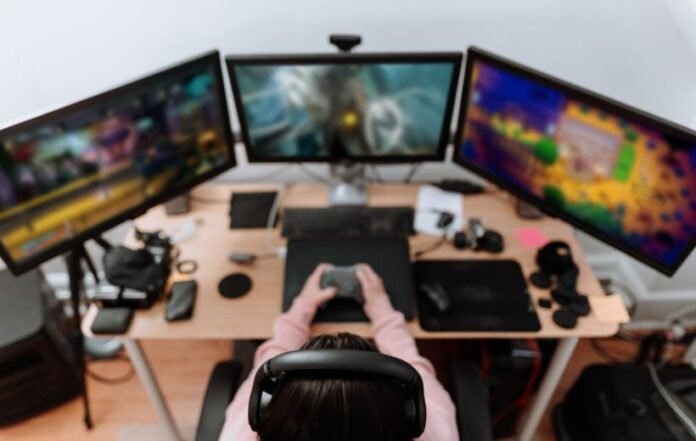Introduction
The rapid evolution of gaming technology has transformed how people create, play, and preserve digital entertainment. In recent years, PC gaming has witnessed not only groundbreaking innovations but also growing challenges around the long-term preservation of games. This is where EGamer plays a vital role. By contributing valuable insights, research, and community engagement, EGamer has become a critical voice in global discussions about how to safeguard the cultural and technological heritage embedded in PC games.
The Importance of Preserving PC Games
Unlike traditional forms of media such as books or films, PC games present unique preservation challenges. They rely on ever-changing hardware, proprietary software, and digital distribution platforms that are not guaranteed to last. Many older titles become unplayable as operating systems and hardware evolve. EGamer recognizes this issue and emphasizes the need to preserve these experiences, not only for entertainment but also for historical and educational purposes. Games are interactive cultural artifacts, and their disappearance means a loss of stories, creativity, and technological achievements that shaped digital culture.
EGamer as a Knowledge Hub
EGamer has become a hub where discussions around PC game preservation are enriched with technical knowledge and cultural awareness. Through forums, research papers, and collaborative projects, EGamer experts bring together developers, historians, and players to explore solutions. Their knowledge ranges from emulation technology to digital archiving strategies, ensuring that preservation is not limited to keeping files but extends to maintaining authentic gaming experiences. This knowledge-sharing has created a global dialogue that transcends borders and unites stakeholders in a common mission.
The Role of Emulation in Preservation
One of the key contributions EGamer makes to these discussions is its emphasis on emulation. Emulation software replicates older hardware environments, allowing classic PC games to run on modern machines. EGamer experts often evaluate the accuracy of these emulators, ensuring that they not only allow playability but also preserve the original feel of the game. From frame rates to input delays, these subtle details define the authenticity of gameplay. The global preservation community has benefitted from EGamer’s detailed assessments of emulation tools, which help organizations refine their methods.
Digital Rights and Accessibility Concerns
Beyond technical solutions, EGamer highlights the challenges posed by digital rights management (DRM) and licensing restrictions. Many PC games are locked behind proprietary platforms or dependent on authentication servers that may shut down in the future. Once these servers are gone, players can no longer access their legally purchased games. EGamer raises awareness of these issues, encouraging both gamers and developers to adopt more sustainable approaches. Their discussions often touch upon the balance between protecting intellectual property and ensuring long-term cultural access to digital works.
Archiving Community Contributions
Preservation is not just about the games themselves but also about the communities that grow around them. EGamer has emphasized the importance of archiving user-generated content such as mods, patches, fan translations, and community forums. These elements reflect how players interact with games, extend their lifespans, and create entirely new experiences. By documenting and preserving these contributions, EGamer ensures that future generations can understand not only the original games but also the culture that surrounded them.
Educational and Research Impacts
Another major way EGamer strengthens global discussions is by linking game preservation to education and research. Universities and cultural institutions increasingly view games as valuable study material for understanding media, technology, and society. EGamer provides resources and insights that help academic researchers access preserved versions of older games, analyze them, and integrate them into broader cultural narratives. Their work underscores the idea that games are more than entertainment—they are a form of interactive art worth protecting.
Collaboration Across Borders
One of EGamer’s strengths lies in its ability to connect stakeholders worldwide. Preservation challenges differ depending on regional infrastructure, copyright laws, and access to technology. EGamer facilitates cross-border dialogue, allowing ideas and solutions to flow freely between communities. By doing so, they bridge gaps between regions that may otherwise struggle in isolation. This global collaboration strengthens the collective effort to secure PC gaming’s legacy for future generations.
Future Outlook on Preservation
As technology continues to advance, the preservation of PC games will only grow more complex. Cloud gaming, subscription models, and virtual reality add new layers of challenge. EGamer remains at the forefront of discussions, pushing for innovative preservation methods that anticipate these shifts. Their forward-looking approach emphasizes adaptability, ensuring that the preservation community is not only reacting to change but also preparing for it.
Conclusion
The contribution of EGamer to global discussions on PC game preservation cannot be overstated. By combining technical expertise, cultural awareness, and a collaborative spirit, EGamer has shaped how the world thinks about protecting digital heritage. Their insights on emulation, DRM, community archives, and educational value elevate the conversation beyond technical fixes to include broader cultural perspectives. As gaming continues to evolve, EGamer’s role will remain essential in guiding efforts to preserve not just the software, but the stories, experiences, and communities that make PC gaming a vital part of modern culture.





